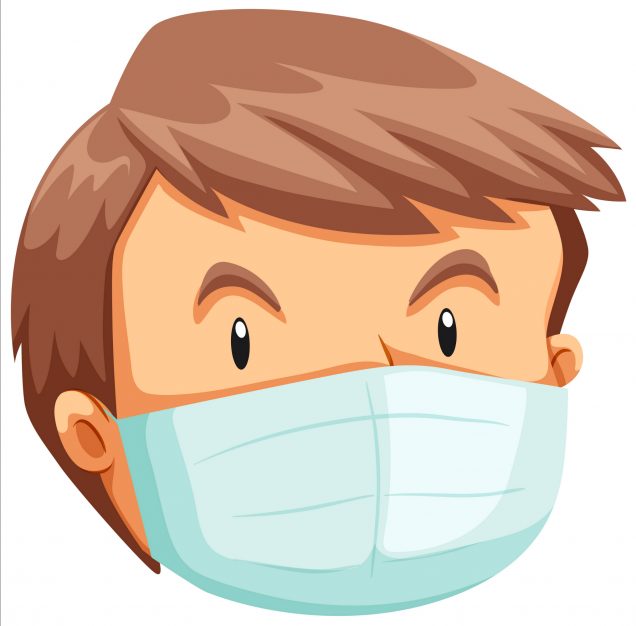Fil-Canadians react to mask laws
Fil-Canadians react to mask laws
 By Irish Mae Silvestre
By Irish Mae Silvestre
The Philippine Reporter
They’re no longer just recommended – they’re mandatory.
As of Tuesday, July 7, Toronto residents are required to wear masks in enclosed public spaces with the city issuing guidelines on appropriate ways to wear masks. Laws, however, vary by region.
This mandate comes amidst concerns of a second spike in COVID-19 cases as businesses slowly resume operations. Mixed messaging early this year caused confusion as health officials discouraged the public from wearing medical masks to prevent a supply shortage for frontline workers. But more evidence suggests that widespread use of masks has significantly slowed infection rates.
A WHO-funded study published in The Lancet medical journal stated that “face masks could result in a large reduction in risk of infection.” The study was conducted across 16 countries.
The Philippine Reporter spoke with Filipino-Canadians to hear their thoughts about masks becoming part of daily life during a pandemic.
• Erick Ang, 47, Toronto, Ontario
• Susan Graham, 40, Brampton, Ontario
• Janet Salamanca, 48, Montreal, Quebec
• Gabrielle Justine J. Santullow, 16, Toronto, Ontario
• Elmer Ragragio, Jr., 36, Rosetown Saskatchewan
—————————————————————
What do you think about mask use being mandatory?
Ang: If the government had made it [mandatory] sooner, we wouldn’t have reached the [current] numbers of positive cases.
Graham: There are many people around us who are vulnerable and have weakened immune systems. If everyone wore a mask, I believe that it would slow down the spread of the virus when combined with regular handwashing.
Salamanca: It should be mandatory because even with the two-meter distance and sanitizers, masks provide another measure to [ensure] we’re safer; you never know what can happen.
Santullow: I agree with the government’s policy on making masks mandatory. Whenever I go out with my family, I see many people crowding in one area and sometimes not adhering to social distancing or physical distancing. So, to show our efforts after being allowed to finally come out once in a while, masks should be mandatory to provide safety from catching the virus. This way we are staying cautious and reducing the risk of having the virus spread quicker.
Ragragio: Simply wearing a mask is a precaution to stop getting the virus. Or, if you’re asymptomatic, it stops or limits you from spreading the virus. Look at what happened in the US – [people who spread the virus] were asymptomatic.
How do you feel about wearing a mask?
Ang: I wear it as a preventive measure.
Graham: Masks are not the most comfortable thing to wear but until the scientists have gotten a handle on this virus, I will continue to wear a mask in public to prevent spread. It’s an added layer of protection. It’s common courtesy to wear one.
Salamanca: Sometimes it can be uncomfortable especially when it’s hot. [But] it makes me feel safe.
Santullow: I don’t mind wearing masks in indoor public places because usually it would be cool inside from the air-conditioning. It’s very hot outside and I dislike wearing the mask because of the moisture I create when I breathe but I must. Although, I can’t completely avoid having sweat formed, wearing the mask in an indoor environment with cooling is tolerable.
Ragragio: I don’t mind it. It’s not just about protecting myself but others, too, especially my family. I’m making sure I don’t bring the virus home.
Should there be a penalty for those who don’t wear masks?
Ang: No jail time but there should be fines.
Graham: Prevent access to public places like stores and public transit.
Salamanca: There shouldn’t be fines but stores should have a rule: no mask, no entry.
Santullow: I don’t think there should be a penalty for people who don’t wear masks because they might have forgotten it or were unable to buy masks. However, they should be aware that they’d be at risk of catching the airborne virus. Shops should have singular masks available for sale at a low price to encourage those who don’t have masks to buy some.
Ragragio: The penalty [for those who don’t wear masks] should be self-isolation or quarantine at home.
————————————————————–
On Selling Reusable Masks During COVID-19
Despite having little sewing experience, Montreal-based Janet Salamanca of K&S started making masks to meet the growing demand.
“It was just trial and error,” she said. “Eventually, I got better at making masks.”
While sales are good, she makes sure to keep prices low.
“I sell them for $5 for adults and $3.50 for kids,” said Salamanca. “I don’t charge much because I want to help [the community] as much as possible.”
Comments (0)